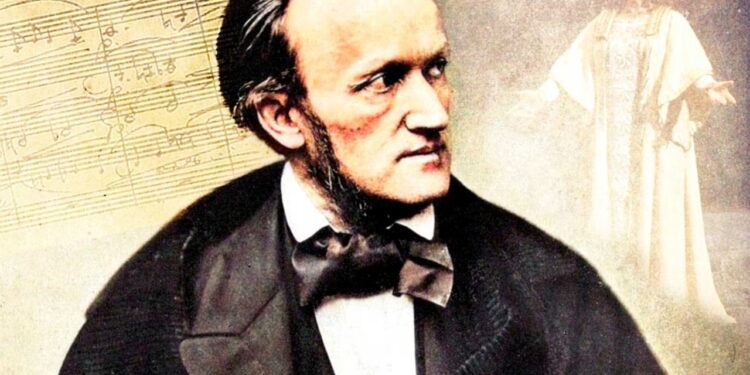Richard Wagner (1813-1883) stands as one of the most influential and controversial figures in classical music history. As a German composer, conductor, and theater director, he revolutionized opera through his concept of “Gesamtkunstwerk” (total work of art), which unified music, drama, and visual arts in unprecedented ways.
Wagner’s musical innovations were groundbreaking. He developed a complex system of leitmotifs – recurring musical themes associated with specific characters, objects, or ideas – that became a fundamental aspect of his compositions. His harmonic language pushed the boundaries of traditional tonality, notably in works like “Tristan und Isolde,” which influenced the development of modern classical music and even impacted popular music composition.
His most ambitious project was the creation of the Ring Cycle (“Der Ring des Nibelungen”), a series of four interconnected operas based on Germanic and Norse mythology. This monumental work, taking over 26 years to complete, encompasses approximately 15 hours of music and represents one of the most extensive artistic achievements in Western culture. Wagner even designed his own opera house, the Bayreuth Festspielhaus, specifically for performing these works.
Major operas in Wagner’s repertoire include “The Flying Dutchman,” “Tannhäuser,” “Lohengrin,” and “Parsifal.” These works showcase his ability to weave complex philosophical and mythological themes with powerful musical expression. His innovations in orchestration, including his expansion of the orchestra size and his novel use of instruments, set new standards for classical music.
However, Wagner’s legacy is complicated by his personal beliefs and their historical impact. His anti-Semitic writings and nationalist ideologies later resonated with Nazi ideology, leading to ongoing debates about separating artistic achievement from personal character. Despite this controversy, his musical influence remains undeniable, affecting composers from Mahler to Debussy and beyond.
Wagner’s impact extends far beyond classical music. His concepts of leitmotifs and dramatic storytelling influenced film scoring, while his ideas about total artistic integration presaged modern multimedia entertainment. His work continues to be performed at opera houses worldwide, with the annual Bayreuth Festival, established by Wagner himself, remaining a prestigious cultural event.
Today, Wagner’s musical legacy endures through both traditional performances and modern interpretations. While debates about his personal beliefs persist, his contributions to music theory, composition, and dramatic presentation have earned him a permanent place in cultural history. His vision of opera as a comprehensive art form, combining multiple artistic disciplines into a cohesive whole, continues to influence contemporary artists and composers, demonstrating the lasting power of his artistic innovation.
newshub




Recent Comments